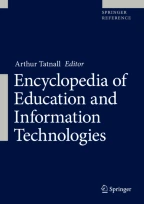Creative Commons
While it might sound encouraging to believe that “information wants to be free,” this mantra often represents a misguided belief that intellectual property rights have no place in modern society. In fact, this is actually quite far from what Stuart Brand likely meant when he purportedly said this to Steve Wozniak in 1984. What Brand probably meant was that technological constraints placed on information (text, images, code, audio, video, etc.) are by default arbitrary add-ons put in place after the fact – after the initial creation of the item in question – and are therefore arbitrary and typically counterproductive to the widespread diffusion and use of these items. That is, the default state of information is free in terms of accessibility. Locking it down by way of digital rights management (DRM) systems and platforms to protect the intellectual...
Access this chapter
Tax calculation will be finalised at checkout
Purchases are for personal use only
References
About the Licenses (2017) Retrieved from: https://creativecommons.org/licenses/
Andrews P (2005) Gates tugs ‘Communists’ threat again. Retrieved from: http://old.seattletimes.com/html/microsoft/2002152694_paul13.html
Berklee Shares (2017) Retrieved from: http://www.berkleeshares.com/
Bill & Melinda Gates Foundation Open Access Policy (2018) Retrieved from: https://www.gatesfoundation.org/how-we-work/general-information/open-access-policy
Building on the Past (2003) Retrieved from: https://creativecommons.org/about/videos/building-on-the-past/
Creative Commons and Open Access (2017) Retrieved from: https://wiki.creativecommons.org/wiki/Creative_Commons_and_Open_Access
Elsevier Open Access Licenses (2017) Retrieved from: https://www.elsevier.com/about/our-business/policies/open-access-licenses
Lim K (2009) Louis Suarez-Potts: on escaping the orgy of consumerism. Retrieved from: http://theory.isthereason.com/?p=2463
McCleod K (2007) Freedom of expression, 1st edn. University of Minnesota Press, Minneapolis
Reticulum Rex (2003) Retrieved from: https://creativecommons.org/reticulum-rex/
Stallman R (2002) What is copyleft. In: Gay J (ed) Free software, free society: selected essays of Richard Stallman. GNU Press, Boston, p 9; 89
State of the Commons (2017) Retrieved from: https://stateof.creativecommons.org/
User Licenses Offered by Elsevier (2017) Retrieved from: https://www.elsevier.com/about/our-business/policies/open-access-licenses/user-licences
Author information
Authors and Affiliations
Corresponding author
Editor information
Editors and Affiliations
Rights and permissions
Copyright information
© 2020 Springer Nature Switzerland AG
About this entry
Cite this entry
Cesarini, P. (2020). Creative Commons. In: Tatnall, A. (eds) Encyclopedia of Education and Information Technologies. Springer, Cham. https://doi.org/10.1007/978-3-030-10576-1_52
Download citation
DOI: https://doi.org/10.1007/978-3-030-10576-1_52
Published:
Publisher Name: Springer, Cham
Print ISBN: 978-3-030-10575-4
Online ISBN: 978-3-030-10576-1
eBook Packages: Computer ScienceReference Module Computer Science and Engineering
